MiddleEast
Latest

1960s aerial spy photos reveal hidden archaeological sites
Archaeologists use satellite photos to spot potential archaeological sites, but urban sprawl and other human development has erased many traces of ancient civilizations. To get around that, Harvard's Jason Urs and Emily Hammer from the University of Pennsylvania figured out how to effectively go back in time to when the land was less despoiled. They dug up and archived a trove of U-2 spy photos from the '50s and '60s, eventually finding ancient canals and "desert kite" stone structures built in northern Iraq by the Assyrians up to 8,000 years ago.

Netflix deal provides a much-needed boost in the Middle East
Despite what it seems, Netflix isn't a dominant force everywhere on the planet. In fact, it's struggling in the Middle East and northern Africa -- Netflix and Amazon combined represent 21 percent of the local subscription video space. The company is determined to get a leg up, however. It just forged its first partnership deal in the region, signing a pact with pay TV provider OSN to make its content available across the area. OSN customers will have access to Netflix through a set-top box launching near the end of the second quarter (around June), and will have the option of paying for Netflix through their existing OSN bills.

The surprising Islamic beauty of 'Engare'
The first question I ask Mahdi Bahrami is, "How do you say the name of your game?" He laughs and responds smoothly, "Yes, it's called En-gar-ay." Engare is an eye-catching game. In Steam's sea of gritty multiplayer shooters, pixelated platformers and cartoonish RPGs, it immediately stands out. Engare is sparse yet richly detailed at the same time, filled with looping lines and delicate curves. It's a game about geometry, art and architecture. Put simply, it's a game about beauty. "When I see these mathematical shapes in a mosque or some other places, I feel like I can see the rules behind it, I can see the mathematics of it," Bahrami says.
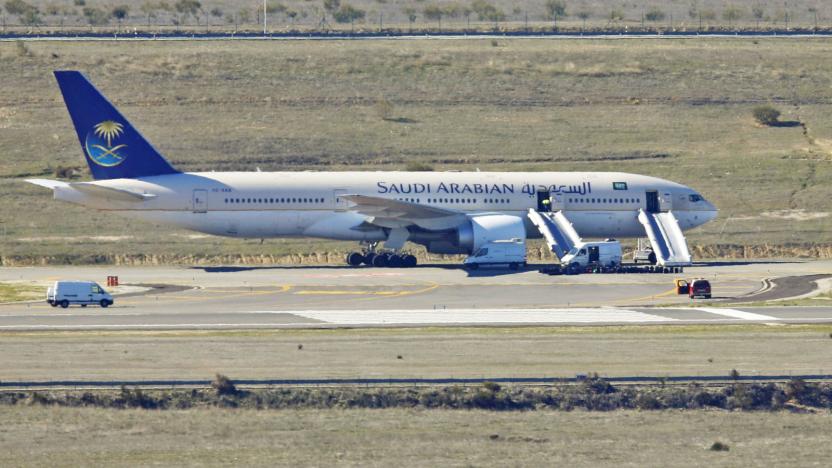
US lifts laptop ban from final Middle Eastern airline (updated)
If you're a business traveller who wants to use your laptop on a flight originating in the Middle East, things are looking up. The US started to lift restrictions for passengers carrying large electronics like laptops on flights originating in the Middle East earlier this month, including lifting the ban at Abu Dhabi airport, and exempting Emirates and Turkish Airlines from the ban. Now, according to a report by Reuters, the US Transportation Security Administration (TSA) has finally lifted the laptop ban on inbound passengers on Saudi Arabian Airlines, the final airline to be under restriction.
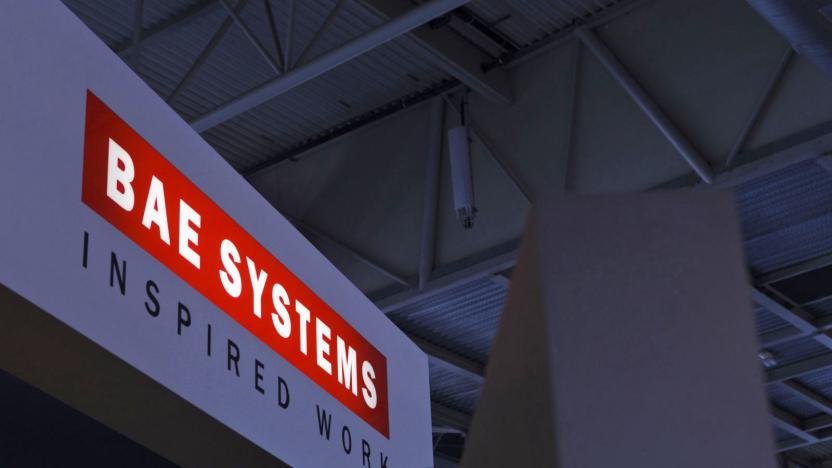
UK defense company sold powerful surveillance tech to Mid East
The BBC reported today that the UK defense company BAE systems sold powerful surveillance technology to a number of countries in the Middle East. The report comes after a year-long investigation spearheaded by BBC Arabic and the Danish newspaper, Dagbladet Information.

Qatar blames current crisis on fake news inserted by hackers
This week a diplomatic crisis hit the Middle East as several countries (Saudi Arabia, Bahrain, Egypt, the United Arab Emirates, Yemen and Maldives) cut ties with Qatar, accusing it of supporting terrorist groups. Now Qatar's foreign ministry has issued a statement putting some of the blame on a fake news story. In a statement, the ministry said hackers installed a fake file on the Qatar News Agency last April, before activating it Monday morning. Reuters reports that file claimed Qatar's Emir Tamim bin Hamad al-Thani made statements warning against confrontation with Iran, and gave support to groups like Hamas and Hezbollah. Qatari officials did not identify who it believes pulled off the hack, but thanked the FBI and the British National Commission for Combating Crime for their assistance in the investigation. Previously, CNN claimed that US government investigators believed hackers based in Russia were behind the breach -- a claim that Russia's government has denied.
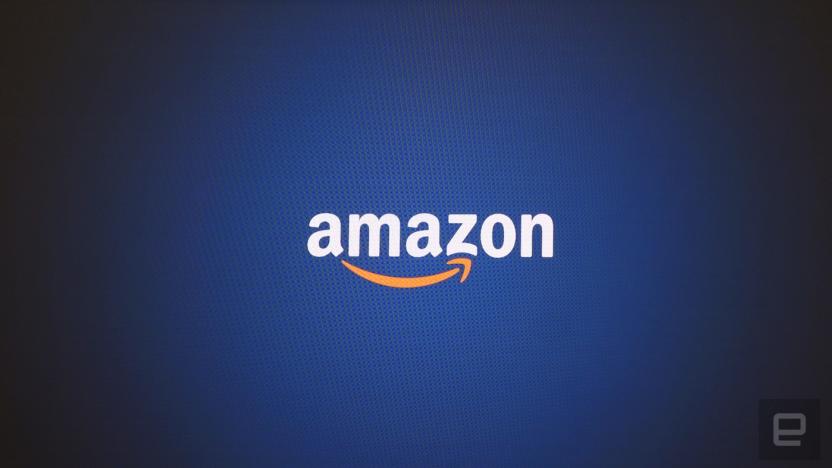
Amazon is buying the 'Amazon of the Middle East'
Amazon wants to be a one-stop shop for the entire world, but has struggled to get a foothold in the Middle East. After months of deliberations, the company has finally purchased Souq.com, the "Amazon of the Middle East." Russ Grandinetti, Amazon VP, says that the deal is a no-brainer, since both sites "share the same DNA," adding that the pair will now "work hard to provide the best possible service" in the region.
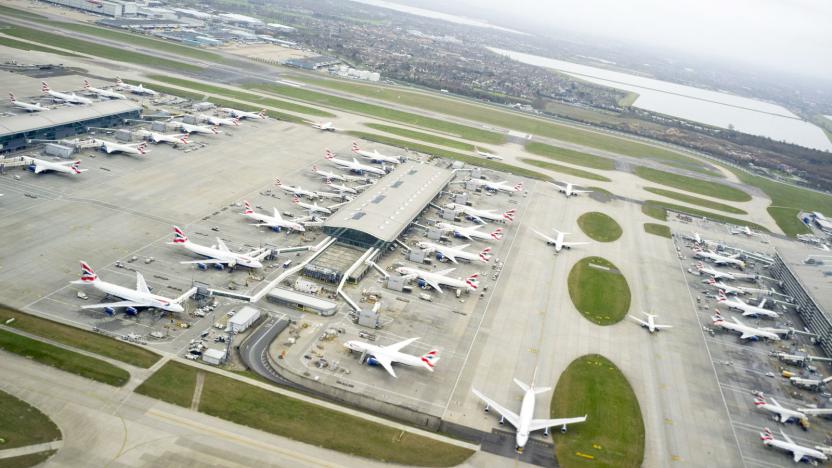
UK also bans devices from cabins on flights from Middle East
The UK has followed the US in restricting electronic devices on flights from several countries in the Middle East and North Africa. Though not identical to the measures implemented by the US, passengers on "select flights" coming to the UK from Turkey, Lebanon, Egypt, Saudi Arabia, Jordan and Tunisia will only be allowed to carry smartphones in the cabin. Any device bigger than 16.0 x 9.3 x 1.5cm, such as laptops, must be stored in checked, hold baggage.

US bans most electronics on Middle Eastern airlines (updated)
The US just made traveling to certain parts of the world considerably more complicated, at least for technology fans. Middle Eastern and African airlines (including Royal Jordanian and Saudia) say the US has asked them to institute a 96-hour ban on carrying most electronics on flights to or from the US, starting on March 21st. You can sit down with your phone or any necessary medical devices, but cameras, laptops and other larger gadgets will have to go into your checked baggage. The exact conditions of the ban aren't yet clear, but an American official said that "12+" airlines are covered, while Saudia exec Abdulrahman al Fahad mentioned 13 countries being affected.
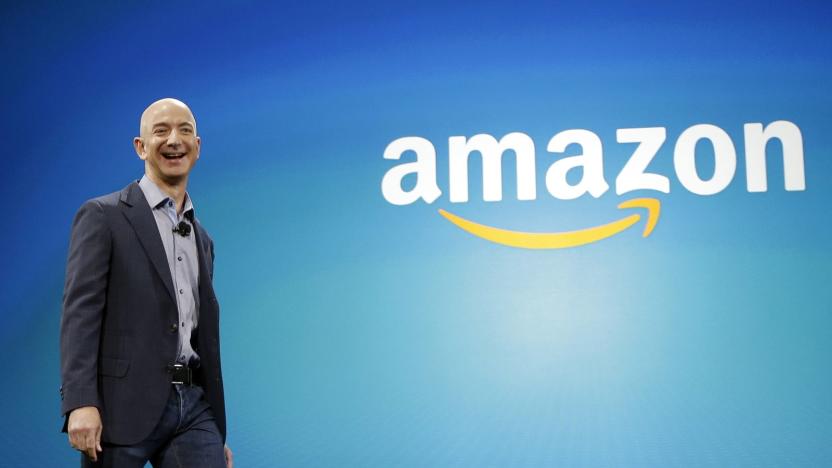
Amazon will spend $1 billion to conquer the Middle East
Amazon is one of the world's largest retail destinations, but it doesn't have much traction in the Middle East. That's why rumors that it's looking to buy Souq.com, the Amazon of the Middle East, make so much sense. Bloomberg is reporting that Jeff Bezos and crew might spend up to $1 billion on the site to gain a foothold across Egypt, Saudi Arabia and the UAE. Neither party is talking about the deal, but if it's getting reported in an august financial publication like Bloomberg then it must be serious.

Uber snags a massive $3.5 billion investment from Saudi Arabia
As a part of its latest round of funding, Uber has received what the Financial Times says is the "largest single investment ever made in a public company." That investment is a $3.5 billion chunk laid down by Saudi Arabia's sovereign wealth fund, at Uber's current valuation of $62.5 billion. Uber has operated in the country since 2014, and in a statement the managing director of the Public Investment Fund, Yasir Al Rumayyan, noted how this is a part of the country's Vision 2030 plan to reduce dependence on oil-related industries. Rumayyan will be taking a seat on Uber's board as a part of the deal, but Uber doesn't have any specific expansion plan there right now. Also notable is the fact that women are prohibited from driving in Saudi Arabia, and Uber says they make up 80 percent of its riders there -- interesting light of of CEO Travis Kalanick's statement that "Our experience in Saudi Arabia is a great example of how Uber can benefit riders, drivers and cities and we look forward to partnering to support their economic and social reforms."

Bringing empathy to the Middle East through gaming
Navit Keren grew up in Israel. She's lived through the signing of historic peace treaties, and horrific terrorist attacks. Just as important though, she's witness to the dramatic deterioration of the relationship between Israelis and Palestinians. The biggest problem she sees, is a lack of empathy. Those living on the other side of the divide are not people, but enemies. "Others" to be feared and hated. Her effort to bridge the gap between the two sides is a pretty novel one: a location-based game. Welcome to the West Bank is merely a working title, but it gets right to the heart of the game. Israeli citizens, primarily teenagers, would play as Palestinian teenagers living in the West Bank. Basically she's asking people to walk a mile in someone else's virtual shoes.

Out of nowhere, Samsung hits us with a gold GS4
And just like that, Samsung Gulf has announced the gold-trimmed Galaxy S 4, complemented by either brown or pink plastic for the guys and girls, respectively (dare we say it). We don't know whether these fresh editions will ever come to markets outside the Middle East, but Samsung's timing couldn't have been better. Meanwhile, we're still waiting on that gold HTC One.

Uber takes its car service to Dubai, enters first Middle Eastern locale
The folks at Uber have had a busy, globe-trotting summer. After plans to ride into China, India and other parts of Asian crept out in June, the private car service has taken its expertise to Dubai. Arrival near the world's tallest building marks the outfit's first entry into the Middle East. Interested customers can use the iPhone app to request a ride in vehicles like the BMW 7-Series with more cars being added on the daily. No word on plans to expand into desert-bound dessert delivery just yet, though.

Baidu and Orange launch mobile browser for Africa, Middle East
Not content to dominate internet search in China alone, Baidu and France Telecom's Orange are partnering to capitalize on African and Middle Eastern markets as well. Today they launched a co-branded version of Baidu's browser on France Telecom's Egyptian operator MobiNil -- it's essentially the same as the one released last year for the Chinese market but in English / Arabic instead (a French version is also coming). The browser is a pre-installed app on carrier-sold smartphones and features bookmarks for Orange and Baidu services. According to Orange, smartphone adoption in the region has become widespread due to the increased availability of 3G networks -- demand apparently doubled in Egypt in the second half of 2012 alone. With nearly 80 million potential customers at hand, Baidu could certainly give Google a run for its money yet again. You can peek at the full PR after the break.

BlackBerry outage affecting users in Europe, Middle East and Africa (update: service restored?)
While the two events are entirely unrelated, a major service outage coinciding with potentially the biggest mobile of the year hitting stores worldwide is just plain old unlucky. Users of RIM's BlackBerry service in the EMEA region are at the wrong end of a network problem affecting BBM, email and internet. At the moment it doesn't appear to be of the vast and crippling scale as last time, but small consolation if you're one of the unlucky ones. RIM has acknowledged the issue, and you can bet the farm on the fact there is more than a handful of slightly stressed engineers on the case, hoping to keep customers from making that impulse purchase. Let us know in the comments if you're affected. Update: We've just received this official statement from RIM in the UK: "Our apologies to any customers impacted by the BlackBerry service issue today. We can confirm that services have been restored and are now operating normally." Update 2: RIM has now issued a statement from CEO Thorsten Heins on the matter, in which he also apologizes and notes that up to six percent of the company's user base may have been affected with a "maximum delay of 3 hours in the delivery and reception of their messages." I want to apologize to those BlackBerry customers in Europe and Africa who experienced an impact in their quality of service earlier this morning. The BlackBerry service is now fully restored and I can report that no data or messages were lost. Up to 6 percent of our user base may have been impacted. Preliminary analysis suggests that those customers may have experienced a maximum delay of 3 hours in the delivery and reception of their messages. We are conducting a full technical analysis of this quality of service issue and will report as soon as it concludes. I again want to apologize to those customers who were impacted today.

RIPE NCC handing out its last block of IPv4 addresses, tries to fend off internet survivalism
In a world where IPv6 lives and IPv4 addresses are scarce, network providers must fight for survival... or at least, claim their IP blocks quickly. The RIPE NCC, the regional internet registry for Asia, Europe and the Middle East, warns that it's down to assigning its last set of 16.8 million IPv4 addresses as of this weekend. That sounds like a lot, but we'd do well to remember that the registry churned through about 5.2 million addresses in just the past two weeks. What's left won't be around for long, folks. To cut back on the number of Mad Max-style battles for dwindling resources, RIPE NCC is rationing out IPv4 for local registries in 1,024-address chunks -- and only to those who both have IPv6 assignments as well as proof of a need for IPv4. With just a bit more than half of the RIPE NCC's customers currently on IPv6, that could still trigger a shortfall among networks that haven't prepared for the internet protocol apocalypse. We'd advise that companies stock up on IPv6 supplies before launching the raiding parties.

Google Maps Navigation for Android hits nine MENA nations, adds Arabic voice search
If there is one thing you can't say about Google's mapping team, it's that they are a lazy bunch. Update after update puts paid to any of that kinda talk, and again, here's another example -- navigation for Android is now available in nine more countries. It's the Middle East and North Africa that get the attention this time, with Jordan, Egypt, Lebanon, Qatar, Algeria, Bahrain, Kuwait, UAE and Saudia Arabia all getting the update. The service comes complete with Arabic voice search as well as "search along route" for routes to near-by POIs that won't take you the long way round. You'll need Android 4.0 or above if you want in on the action, but it's available now for those that do.

Avanti launches prepaid, Ka-band satellite internet access, wants us Yelping from the Alps
Avanti has been beaming satellite broadband to Europe for awhile, but it's been tied to a subscription through carrier deals. That's a tough sell to customers who, by definition, don't want to be tied to anything -- which is why the company just launched prepaid satellite internet access for the continent. Although the Ka-band service's 4Mbps downstream and 1Mbps upstream speeds won't have anyone dropping their 330Mbps fiber anytime soon, the pay-as-you-go strategy will let travelers and rural dwellers get broadband in a pinch, no matter how spotty terrestrial access might get. Imagine Skype calls during Swiss ski vacations and you've got the gist of it. Carriers will resell the data in healthy doses of 1GB or larger, and Avanti is adamant that there won't be any nasty throttling surprises waiting in store. While exact prices will depend on partners, the provider isn't waiting for those details before it covers much of the Old World: its upcoming HYLAS 2 satellite (what you see above) will share the speed with Africa, the Caucasus region and the Middle East as of August 2nd, making it almost too easy for us to update Google+ in Georgia.

BlackBerry flagship store coming to Dubai, hopes you'll buy
While RIM's current fortunes are making plenty of execs nervously tug at their ties, there's still plenty of people cheerfully tapping away on BlackBerry keyboards -- especially in the Middle East. It makes at least some sense, then, to launch a big ole' flagship shop in Dubai. Teaming up with local carrier Axiom Telecom, the handset manufacturer is in the final negotiation stages for a 1,500 square-foot store. According to RIM, it's the first of several planned for the region and should mean plenty of places to snap up one of those (reassuringly?) expensive BlackBerry Porsche models on your next overseas trip. Business class, of course.












